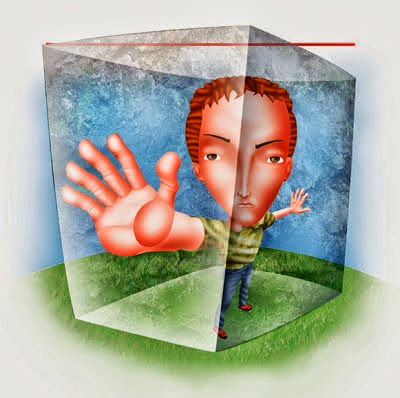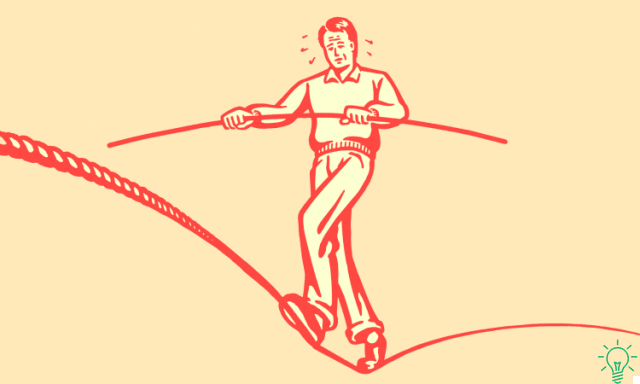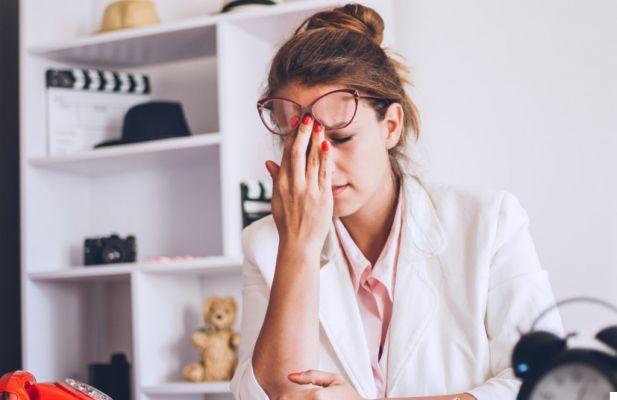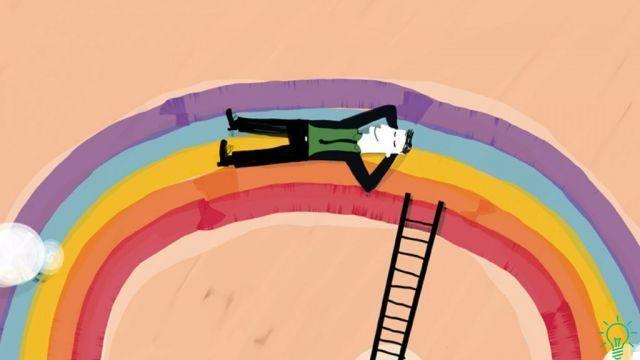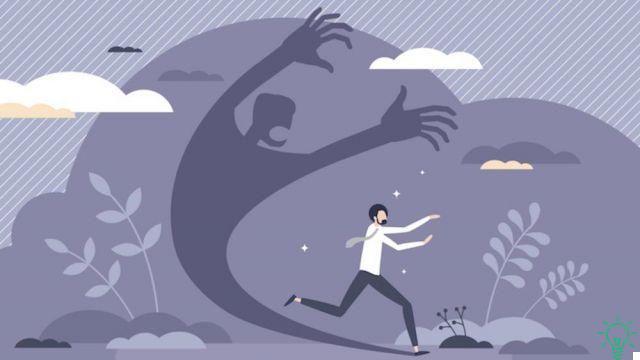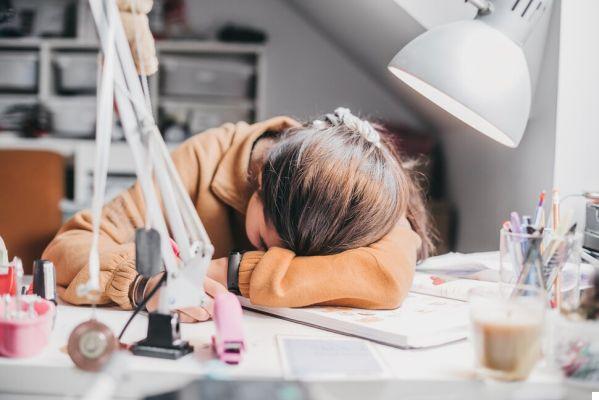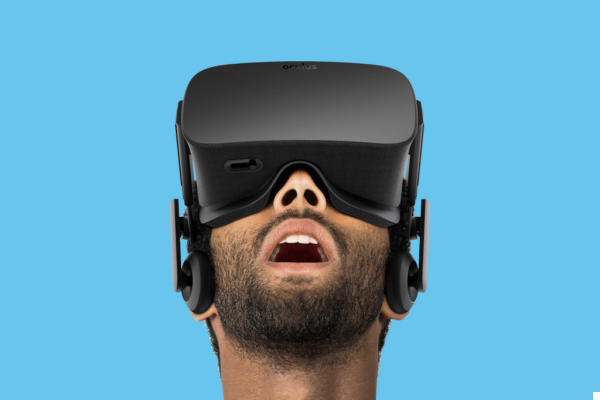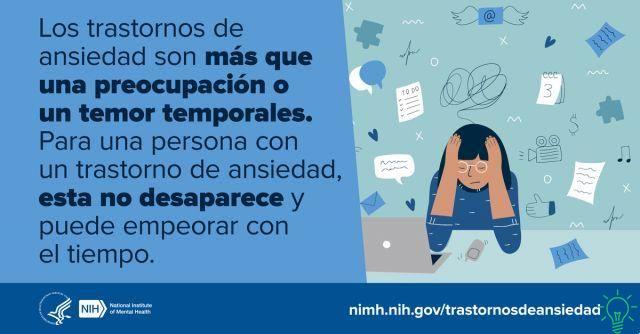
Anxiety is a constant in our lives and can be difficult to manage at times. However, with the correct method, it is possible to reduce it to a minimum.
Breathe: There are many ways to manage anxiety
You know that feeling of your heart beating faster in response to a stressful situation? Or do your palms get sweaty when faced with an overwhelming task or event?
This is anxiety, our body's natural response to stress.
If you haven't recognized your triggers yet, here are some of the most common: your first day at a new job, meeting your partner's family, or giving a presentation in front of many people. Everyone has different triggers, and identifying them is one of the most important steps in treating and managing anxiety attacks.
Identifying your triggers can take some time and self-analysis. In the meantime, there are some things you can do to try to help calm or control your anxiety so you don't get over it.
How to handle anxiety? Here are 5 quick methods
If your anxiety is sporadic and makes it difficult for you to concentrate or do tasks, there are some quick natural remedies that could help you regain control of the situation.
If the anxiety is focused on a certain situation, such as being worried about an impending event, you may notice that the symptoms are short-lived and usually go away after the expected event occurs.
Question your thought pattern
Negative thoughts can take root in your mind and distort the seriousness of the situation. One way to learn to manage anxiety is to challenge your fears, ask yourself if they are true, and see where you can regain control.
Practice deep breathing
Try to inhale 4 times and exhale 4 times per minute, for a total of 5 minutes. If you get out of breath, you will slow down your heart rate, which should help you calm down.
Use aromatherapy
Whether in oil, incense, or candle form, scents like lavender, chamomile, and sandalwood can be very soothing.
Aromatherapy is believed to help activate certain receptors in the brain, which may relieve anxiety.
Go for a walk or do 15 minutes of yoga
Sometimes the best way to stop anxious thoughts is to remove yourself from the situation. Taking the time to focus on your body and not your mind can help manage anxiety.
write your thoughts
Writing down what makes you anxious gets it out of your head and can make it less daunting.
These relaxation tricks are especially useful for those who experience anxiety from time to time. They can also work well with someone who has generalized anxiety disorder (GAD) when they're in trouble!
However, if you suspect you have GAD, quick coping methods shouldn't be the only type of treatment you employ. It pays to find long-term strategies to help reduce the severity of your symptoms and even prevent them.
Do not miss our article on 7 books that will tell you how to say goodbye to anxiety
6 long-term strategies to manage anxiety
If anxiety is an integral part of your life, it's important to find treatment strategies that help you keep it under control. It could be a combination of things, like counseling and meditation, or it could just be about removing or resolving the anxiety trigger.
If you're not sure where to start, it's always helpful to discuss your options with a professional who can suggest something you haven't thought of before.
PS: You may also be interested in these 6 psychological relaxation techniques that we discuss in another article
Identify and learn to manage your anxiety triggers
You can identify triggers on your own or with a therapist. Sometimes they can be obvious, like caffeine, alcohol use, or smoking. Other times they may be less obvious.
Long-term issues, like financial or work situations, can take some time to understand: is it a project deadline, a person, or the general situation? This may require additional support, through therapy or friends.
When you discover your trigger, you should try to limit your exposure to it if possible. If it is not possible to limit it, for example, if it is due to a stressful work environment that cannot currently be changed, the use of other anxiety management techniques may help.
Some general triggers:
- a stressful job or work environment
- drive or travel
- genetics: anxiety may run in your family
- withdrawal from drugs or certain medications
- side effects of some medications
- trauma
- phobias, such as agoraphobia (fear of open or crowded spaces) and claustrophobia (fear of small spaces)
- some chronic diseases such as heart disease, diabetes, or asthma
- chronic pain
- having another mental illness such as depression
- caffeine
Adopt cognitive behavioral therapy (CBT)
CBT helps people learn different ways of thinking about and reacting to situations that cause anxiety. A therapist can help you develop ways to change negative thought patterns and behaviors before they spiral into a spiral that is difficult to escape.
meditate daily
While it takes some practice to do this successfully, mindfulness meditation, when done regularly, can ultimately help you train your brain to reject anxious thoughts when they arise.
Meditation also helps to focus on the present, reducing anxiety that depends on the future or the past.
If sitting still and concentrating is difficult, try starting with yoga.
Change your diet
Changing your diet or possibly taking supplements is definitely a long-term strategy for managing anxiety. Research shows that certain nutrients can help reduce anxiety.
These include:
- melissa
- omega-3 fatty acids
- Ashwagandha
- Green Tea
- valerian root
- coffee coffee
- dark chocolate (in moderation)
However, it can take up to three months for your body to reap the nutritional benefits of these herbs and foods. If you are taking other medications, be sure to discuss herbal remedies with your doctor.
Keep your body and mind healthy
Exercising regularly, eating balanced meals, getting enough sleep, and keeping in touch with the people who love you are great ways to keep anxiety symptoms at bay.
See also: Quitting smoking: psychological benefits
ask your doctor
If your anxiety is severe enough that your doctor deems medication appropriate, there are several instructions to follow, depending on your symptoms. Discuss your concerns with your doctor.
When is anxiety bad?
Identifying what type of anxiety you're dealing with can be a bit challenging, because the way your body reacts to perceived danger may be completely different than someone else's.
Chances are you've heard of anxiety as a general term for that general feeling of worry, nervousness, or discomfort. It is often a feeling that grows in response to an impending event that has an uncertain outcome.
Every person has to deal with it at one point or another, because it's part of our brain's response to perceived danger, even if that danger isn't real.
That said, there are times when anxiety can become severe, escalating into anxiety attacks that initially seem manageable and then gradually build up over the course of a few hours. (This is different from a panic attack, which comes on suddenly and goes away.)
Signs of an anxiety attack
Here are some of the more common mental and physical symptoms of anxiety:
- feelings of danger, panic, or fear
- nervousness or restlessness
- high heart rate
- Breathable grips
- shaking or chills
- tired or weak
- Gastrointestinal disorders
- difficult to focus
- hyperventilation
It is also possible to experience an anxiety and panic attack at the same time. The quick anxiety management strategies mentioned above can also help with a panic attack.
Other mental strategies for coping with panic attacks include focusing on an object, repeating a mantra, closing your eyes, and going to your happy place.
Symptoms of a panic attack
- affraid to die
- feeling like you're losing control
- a feeling of detachment
- Heart palpitations
- difficulty breathing
- chest pain or tightness
- nausea
- feeling dizzy
- numbness or tingling in the extremities
- sensation of heat or cold
How to manage anxiety if the above methods do not work?
If you find that quick ways to manage anxiety haven't worked, you may want to consider reaching out to a professional for help. Especially if you think you have GAD and the anxiety is interfering with your routine activities and/or causing physical symptoms.
A professional can help streamline the process of identifying triggers, maintaining long-term strategies through behavioral therapy, medication, and more.
For example, if your anxiety stems from a trauma you experienced in the past, it may be helpful to work on this with a certified therapist. On the other hand, if your brain chemistry predisposes you to chronic anxiety, you may need to take medication to control it.
Anxiety is a constant in our lives, but it should not take over your day to day. Even the most extreme anxiety disorders can be treated so that the symptoms are not debilitating.
Once you find the treatment that works best for you, life should be a lot more enjoyable and a lot less daunting.
They may be interested in:
- How to manage a long-distance relationship in 15 steps
- Quitting smoking: psychological benefits
- Goodbye to anxiety: 7 books that will tell you how to stop worrying
- How to Effectively Approach a Girl on Instagram
- Eliminate daily stress: 10 infallible tips
- When a narcissist collapses: from pain to anger






